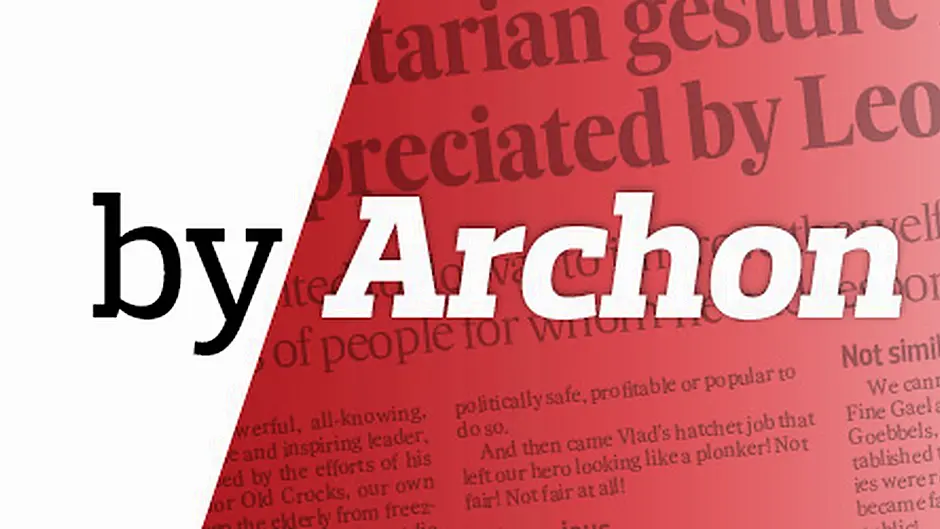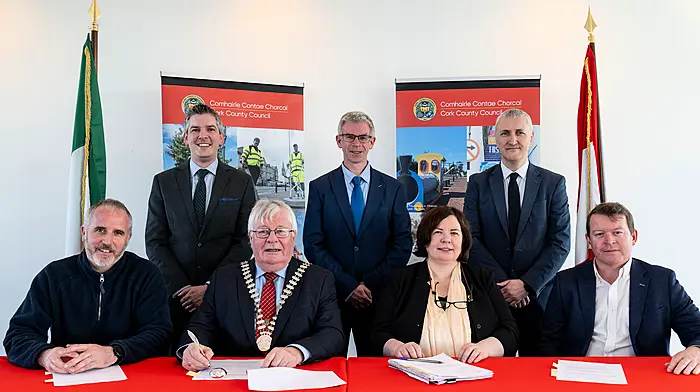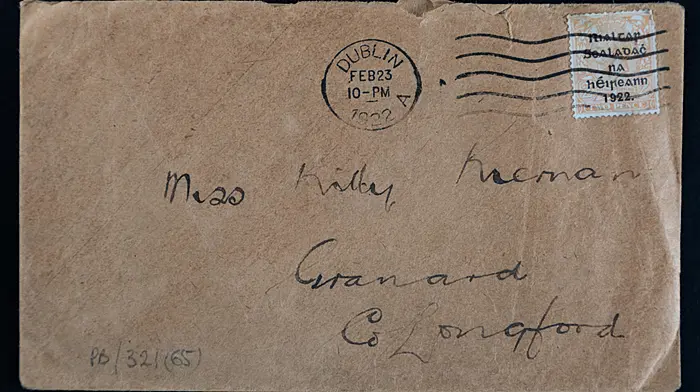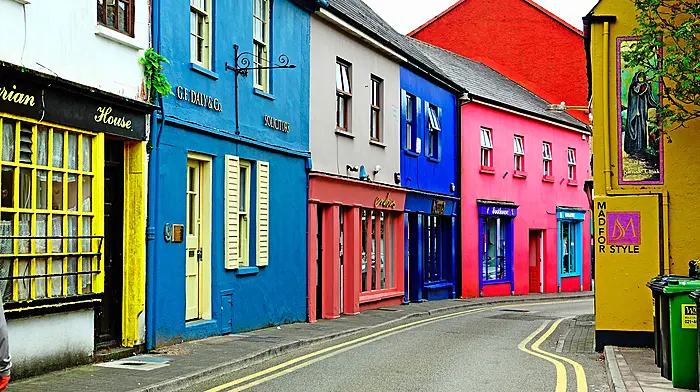IN the wake of Fine Gael’s car crash, the punters await in eager anticipation an explanation for the party’s woeful performance in the general election.
And what about poor Vlad Varadkar? Will he follow in the footsteps of those Roman knights who, accepting responsibility and blame on behalf of their supporters, did the decent thing and fell on their swords? In other words, will he hand over leadership to someone else, accept that the show is over and that he’s made a bags of things?
The position in which Fine Gael now finds itself was accurately summed up by a senior party figure who told the Irish Post that ‘the campaign was a f*****g disaster.’ Another senior chap said: ‘The D4 boys ran it again and it didn’t work. Blame nine years all you like, but we made things difficult for ourselves.’
Some FG politicos put it more dramatically: Acknowledging how out-of-touch Fine Gael had become under Vlad, they described the Confidence and Supply arrangement as a suicide pact. The party underestimated the strength of the tide of change and that almost one in three voters said health was the driver behind their vote. Housing was second and by far the dominant issue for younger voters.
‘Pastures new’
As for Micheál Martin’s response to the election? He had ‘pastures new’ in mind and it didn’t take him long to sink the knife into the back of his former FG compatriots.
‘Look,’ he said, ‘I have made it clear. We want to form a new government with centre ground parties, which I think we’ll have enough seats to do. People want a new government. They are fed up of Fine Gael. They are nine years there.’
But when asked if a second general election was on the cards, he answered that such an eventuality was scaremongering and not going to happen.
As for government with Sinn Féin, Martin continues to suffer those dreadful crises of conscience. He’s not sure if republicans can be trusted to run the Department of Justice or the Garda and he would much prefer to keep the Shinners at barge pole length.
Indeed, perched in his ivory tower, he barely can conceal his contempt for SF. ‘Jobs, enterprise, economic progress and employment would be destroyed if they got their way,’ he told us last week.
And yet, Martin’s hard line was curiously out of kilter with that of other members of his party, particularly Deputy John McGuinness who earlier in the month downplayed Martin’s assertion that SF was controlled by ‘shadowy figures.’
Martin, he said, saw danger to the State in the way that the Sinn Féin Ard Chomhairle pulled the strings but, on examining the manner in which successful political parties functioned, it was apparent that an unelected backroom group, the Ard Chomhairle or National Executive Committee, ran the show. Indeed, Fianna Fáil’s decision-making process was similar to that of Sinn Féin.
Importantly, McGuinness was of the opinion that Martin was wrong to rule out talks with Sinn Féin. ‘Whatever the coalition is going to be, it’s not going to be a coalition that will reflect the policies of any one political party,’ he said.
Eye back on Russia
And now for something different: The Brits have their problems with the Russians, who they accuse of interfering in Britain’s 2016 referendum on European Union membership. They claim that Mr Putin’s agents infiltrated the Conservative Party and ‘cultivated’ leading Tories, including Boris himself, although the latter argued forcefully that the Ruskies were never able to influence UK politics, or him.
Which is not to say that everybody believes Boris. For instance, significant elements of Britain’s right wing media are convinced that Russia not only meddles in British politics, but also has a tangential political influence on Ireland.
We’re not codding. Listen to this. Reporters on the prestigious BBC news programme, Newsnight, have trouble pronouncing the word Micheál, when referring to the Fianna Fáil leader.
But instead of ringing someone in Turner’s Cross, where Micheál comes from and where the Queen’s English is wonderfully spoken, the BBC treats the pronunciation of his name as if it were a gobstopper bouncing against the tonsils.
Consequently, they refer to him as ‘Mee-haul.’ Or they call him ‘Meek-hill’ or ‘Mich-hail.’ However, in recent weeks, they’ve finally settled on a Russian version: the glorious ‘Mikhail.’
The television network, RT (Russia Today) got wind of the BBC’s linguistic problems and seeing that they were making a dog’s dinner of Mickey’s appellation, they too Russianised Our Hero, taking great delight in referring to him as ‘Mikhail’ Martin, Ireland’s ‘next prime minister.’
And, believe it or not, this in turn led to conspiracy theorists jumping to the conclusion that the transformation of ‘Micheál’ into ‘Mikhail’ was a coded message to Russians agents in Britain!
Twitter-addicts even suggested that the Newsnight programme was paying more attention to the name of an Irish politician than to the much more important Russian infiltration of the British Broadcasting Corporation.
Not that the Russians are without nomenclature problems when speaking their own lingo. For instance, the horrendous name, ‘Dazdraperma’, is an abbreviation of ‘Da zdravstvuyet pervoye maya’ (meaning ‘Long Live May Day’).
Indeed it’s the fate of an acquaintance of ours to have such a moniker. He’s from Pereslavi-Zalessky, a town not far from Moscow; tongue-twisters, indeed.
Identity theft
But, on a more serious note, it’s not unknown for coded messages to be transmitted in apparently innocuous ways by agents of non-friendly countries prepared to abuse Ireland’s neutrality.
For instance, back in 2010, Mossad thugs from the Israeli secret service, in conjunction with the Israeli Embassy, used coded messages when stealing the identities of eight Irish citizens to facilitate an assassination plot. The intention was to kill a political opponent, Mahmoud Al-Mabhouh, in a Dubai hotel.
The vile murder was carried out, but the Israelis never acknowledged the passport theft from Irish citizens. To this day speculation exists that the Israelis might still be using this country for criminal activities which, in turn, prompts occasional demands for the rogue embassy to be shut down and the ambassador booted out.
Government ministers at the time said the passport theft put the security of Irish citizens at risk. The then Minister for Foreign Affairs, one Mikhail Martin from Turners Cross, did his best to assuage fears among the citizens of Ireland regarding other possible crimes but, it seems, all he managed to do was to have a low ranking Israeli official expelled.
It was not Mikhail’s finest hour!
Subscribe to the Southern Star's YouTube channel, like us on Facebook and follow us on Twitter and Instagram for all the latest news and sport from West Cork.







